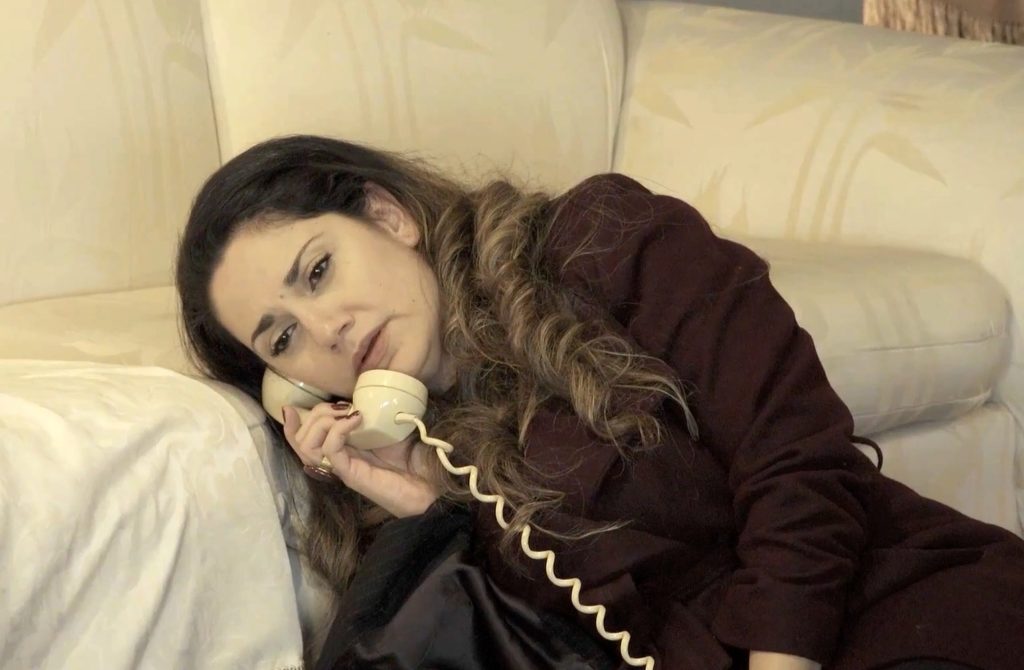Jean Cocteau, legendary arts agitator, prophet of modernism would have been 70 when Francis Poulenc premiered his penetrating one-act tragédie lyrique, La Voix Humaine, in 1959. Profoundly religious, a founding member of the fabled circle of French music reformers, Les Six, Poulenc was only 10 years younger than the éminence grise of the Parisian avant-garde and yet their professional relationship of almost four decades had always been largely deferential on Poulenc’s part. That he should have chosen to set Cocteau’s revolutionary monodrama written over 30 years earlier as a follow-up to his searing Dialogues des Carmélites is testament, not only to the composer’s abiding admiration for Cocteau as a librettist, but also to the enduring depth and clarity of his collaborator friend’s piercing insight into the human condition.
Showcasing both halves of a historic La Voix Humaine companion set, play and opera featured in succession, Voicebox: Opera in Concert turns its attention to the company’s first on-line offering, a digital double-bill, resourceful, passionate, brave, though perhaps inevitably, far from neatly bookended by equally praise-worthy realizations.
Featured solo performer in a newly translated English language production penned by London director Daniel Raggett, Toronto Mirvish headliner Chilina Kennedy appears as The Human Voice’s tortured protagonist to decidedly mixed effect. Identified by Cocteau only as Elle, Kennedy conspicuously labours long and hard to establish a verifiable persona — a woman warring by phone with herself and an unseen ex-lover, at times simultaneously, their relationship crumbling to dust even as she speaks.
The conceit of telephone as ironic instrument of failed communication, more a symbol of disunion than connectedness, fuels a good deal of story, a classic example of stream of consciousness narrative — intuitive, sketchy, disjointed. While Elle’s relentless patter of denial and self-recrimination are abundantly well-expressed and clearly thematically sanctioned, Kennedy’s conception of rhythm and pacing allows little in the way of reactivity. Lost in a tangle of rambling monologues, clutching at pseudo improvisatory straws, the over-arching impression is of an actor who has simply forgotten how to listen albeit to a soundless presence at the other end of an imagined cell connection. Calls drop out. As does empathy.
At the opposite end of the actorly spectrum, posture and pose are highly problematic here. Slouched languorously on an immense white couch, sprawled across Elle’s living room floor, lounging on her unmade bed, Kennedy’s consistently loose, casual body language feels oddly inappropriate — more bored adolescent than jilted lover in grave crisis.
Cocteau’s relationship with actors was a stormy one throughout the duration of his career. His work, many complained, was better suited to robots than living, breathing artists. In many ways, The Human Voice is a demonstration of Cocteau’s resolve to disabuse himself of the accusation once and for all. The lack of limits, the vagueness of structure conferred enormous freedom of expression on the play’s one and only player. And a towering weight of responsibility. Like all who have appeared in the role before her, Kennedy ultimately makes her own way through the meandering, abstract, excruciatingly dense dramaturgy. Much can be forgiven.
On the more unequivocal side of Opera in Concert’s current twin presentation, soprano Miriam Khalil contributes a performance of immense virtuosity and control. From opening fade up, this La Voix Humaine, the opera, compels instant attention. Sung/spoken in original, impeccably inflected French, Khalil utterly overwhelms, her shattered, haunted Elle sweeping aside any suggestion of dramatic pretence in a surge of veracity and sharp, tangible emotion.To witness Khalil’s meticulously measured portrayal of a woman drawn deeper and deeper into an ocean of pain, grief crashing over her, drowning in the realization that love has vanished is beyond tearful. Beyond heartbreak.
Pianist Narmina Afandiyeva partners, evoking much of the biting texture and vivid orchestral colour so strongly evinced by Poulenc’s exceedingly variable score. Elle’s stunning arioso, J’ai rêvé ce qui est, in which she recounts a recent secret drug-induced suicide attempt, powerfully sung by Khalil to devastating effect, is particularly well-supported.
Poulenc’s use of motifs — a series of audible signposts to the tortuous proceedings — are much in evidence in La Voix Humaine as are a wide variety of sharply interjected phrases, sometimes sweet, sometimes dissonant reflections, not so much of Monsieur’s voice per se, but of its impact on the object of his indifference. Khalil’s mastery of dramatic nuance, her responsiveness to Afandiyeva’s crisp harmonic cues, is resonantly and consistently on point. The two make a formidable team.
Directed by Guillermo Silva-Marin with principal videography and editing by Ryan Harper, Opera in Concert’s current on-line undertaking, rough and ready production values notwithstanding, amply demonstrates the willingness or, perhaps more properly, determination of a company not noted for its powers of theatrical innovation to break new ground.
Voicebox deserves a hearty round of virtual applause.
* * *
The Human Voice/La Voix Humaine is available on Vimeo until February 19th. Tickets available https://www.eventbrite.ca/e/the-human-voice-tickets-126567557973


